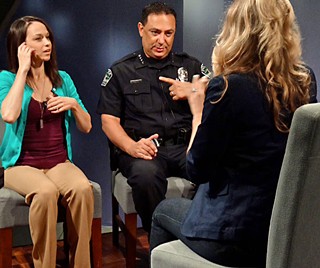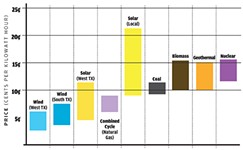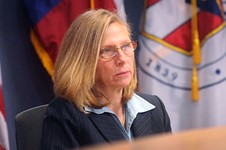ACCESS News Trying to Fill Funding Void
Program for deaf and hard-of-hearing may not have third season
By Jordan Smith, Fri., May 17, 2013

Dvorah Ben-Moshe is a woman with a mission – a modest goal, really, she says, to stimulate civic involvement and understanding of what it means to live in representative democracy. And for the last several years, she's been doing just that via ACCESS News, the public television program she created with her business partner Ken Hurley. By all measures the venture has been a success, she says, attracting a diverse group of guests – from Austin Police Department Chief Art Acevedo and UT Law professor Sanford Levinson, to U.S. Reps. Lloyd Doggett and Michael McCaul.
Nonetheless, its future is now in the balance as grant funding has run out, the pair is on the hunt for more, and when – or whether – season three of the KLRU program will ever air remains unclear. "So much good comes out of that show" and would be a loss if it didn't continue, said Acevedo, a two-time guest on the program.
The half-hour weekly program is much like other news and interview programs but with one key difference: The host and interviewer is deaf. Austin has a sizable deaf and hard-of-hearing community, due in large part to the nationally recognized Texas School for the Deaf, and Ben-Moshe, whose son is deaf, has long wanted to bridge the communication gap between the hearing and deaf world as a means of fostering understanding and civic engagement.
She got her chance in 2010, when she noticed a posting for a grant from the Knight Foundation, which supports arts and media innovation. Specifically, the foundation was issuing a Knight Community Information Challenge Grant, designed to engage local communities with innovative new communication programs. Ben-Moshe was inspired to apply; the foundation wanted her to figure out a way "to make information accessible to the community in the same way that clothing or food is accessible," she said. She was hooked; the application, which proposed ACCESS News as a means to engage not only the deaf and hard-of-hearing community, but the community as a whole, while bridging what has traditionally been a communication divide, was successful, netting Ben-Moshe and her partner a two-year $185,500 grant; additional funding was secured through the Austin Community Foundation.
That money has now run out and Ben-Moshe is wondering whether season three will make it to the small screen. "We are hoping" to keep it going, she said. She and Hurley have written grant proposals and Ben-Moshe has approached both Dell and Google for possible funds. Indeed, with Google Fiber coming to Austin there's a chance to expand the show's reach well beyond Austin – which is an ultimate goal, she says. "Information makes us powerful," she said. And "getting peoples' voices heard, that's what citizenship is." She notes that between two and four people in every 1,000 are "functionally deaf"; add in the hard-of-hearing and that number jumps even higher, meaning that providing communication across communities is an increasing need. Hosted by Gallaudet University graduate and American Sign Language speaker Tamara Suiter-Ocuto, the show is interpreted to spoken English by Jennifer Stoker, and is also closed captioned. The program has support from Austin Community College – it's produced with students at the Pinnacle Campus – but capital is lagging.
ACCESS News is "good journalism, it's professional" and totally accessible, Ben-Moshe said. "It's got everything going for it." Acevedo agrees. "I know we've got a significant [deaf and hard-of-hearing] community here, and beyond that it's just a great show," he said, delivering education and information to a large swath of the city, including a "segment of society that deserves information" but has not always been included in traditional news and information. "It would be a shame to lose it," he said.
Got something to say on the subject? Send a letter to the editor.










